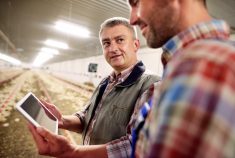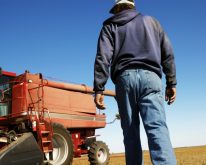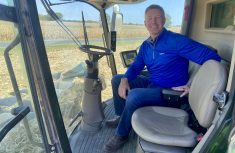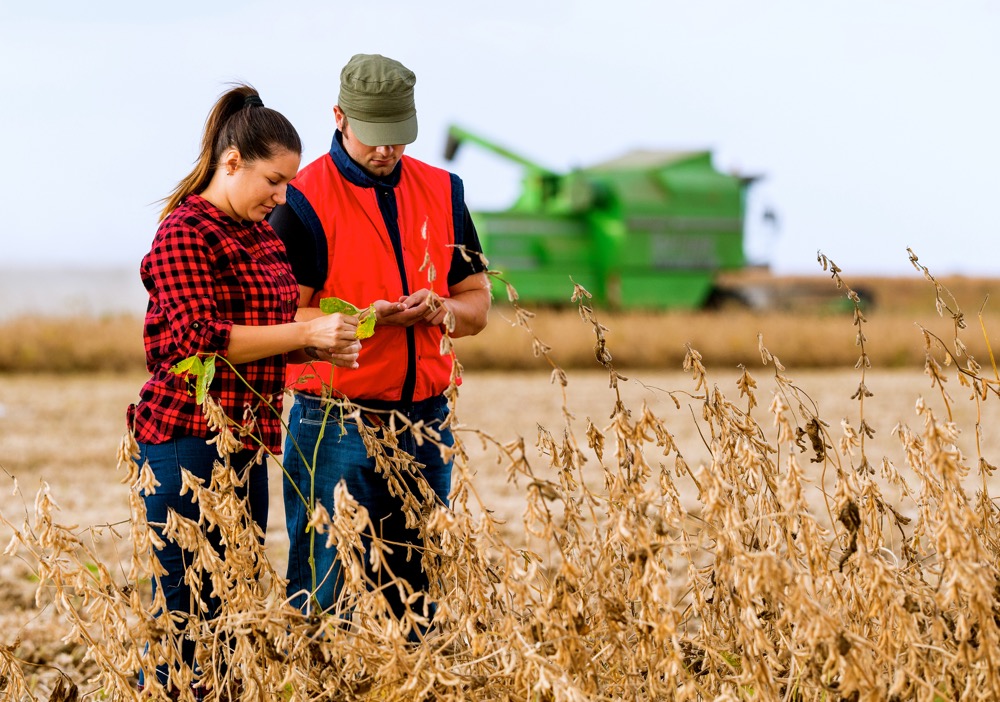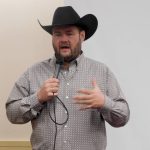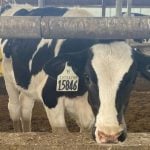In 1995 James Reesor and a business partner bought a 300-sow farrowing herd. Today, two decades later, RFW Farms is a 4,000-sow farrow-to-finish multi-site operation, producing about 2,000 hogs a week. By all measures, those 20 years have been challenging times in the hog business, yet this company has emerged as one of the largest hog operations in Ontario.
How did they do it?
Reesor has created a core culture of quiet resolve, respect and attention to detail. Opportunities presented themselves, and the leadership was prepared. Without a lot of fanfare, a unique business structure evolved, one based on a foundation of mutual respect between farming families, backed up by practical intelligence and unwavering leadership.
Read Also

The Secret Sauce of Sibling Run Farms
Working with family can be difficult, but successful sibling agricultural operations seem to leverage the unique advantages of their relationships to create growth for their farms.
RFW owns the sows, nursery and finishing hogs and raises them under business agreements with over 30 farm families throughout Huron, Perth, Middlesex, Wellington, and Waterloo. RFW Farms also owns and manages two of the five sow farms supplying the system.
Through regular communication with the individual farmers, RFW Farms closely manages the entire production system, including logistics, health, and marketing. It has been able to leverage scale, synergies and skills without huge overhead investments in concrete and equipment.
“We treat it like a publicly traded company,” says James Reesor, owner and CEO from RFW’s head office in Grimsby, Ont. This includes biannual meetings with producer-owners, and it also means annual budgets and quarterly reports. However, unlike many public companies, Reesor doesn’t publicly set growth targets. Instead he manages the farm corporation so it can grow when opportunities arise.
But RFW also has its feet on the ground. As a former government extension hog specialist, Reesor saw the industry up close, and he has applied what he learned.

As well, the RFW leadership team has created a culture of improvement, with Reesor, Ryan Martin as production manager, Sunnie Hu as finance manager, and veterinarian Greg Wideman. “In the ’90s when three-site pig-raising systems emerged, it was big on ideas and short on ways to manage it,” says Reesor.
RFW Farms shares production, performance and costs per kg gain information with producers so they can benchmark against each other. The focus is managing production details and having respect for each other, not competition. “We don’t put a crown or goat horns on anyone,” says Reesor.
Instead, they keep detailed batch records of each nursery and finishing barn group. “Performance information is shared within our system,” says Reesor. “Everyone feels the responsibility to the others in the systems because we rely on each other to improve.”
The team also thinks carefully about what to measure, and what to learn from those measurements. For example, in the nursery-to-finisher barns, the key profit drivers are feed efficiency, cost of gain, average daily gain, mortality, morbidity and carcass quality. But these measures represent outcomes of other decisions.
Although the corporation doesn’t have written vision and mission statements, it does have an overarching goal to maximize nursery-to-finish barn performance, and it is imperative that everyone in the system buys into this goal.
In other words, they rely on each other, and they internalize that as an essential ingredient in all their thinking.
“The goal is to have reliable, meaningful, predictable performance so you can identify what you want to improve,” says Reesor. When prices slumped and marketing was a struggle, RFW continued to focus on what it could control, i.e. production. “Managing details has to be the first responsibility,” says Reesor.
Yet RFW doesn’t write standard operating procedures. Because the team is always improving, expanding and evolving, they’d be continually amending the procedures to suit their diverse group of farms. “You can be happy with results, but one should never be fully satisfied,” says Reesor. “That’s the mindset of the person we want working with us.”
Yet Reesor also recognizes that as a business becomes larger, more formalized management systems are required.
The group meets twice a year to exchange ideas and review recent progress. Over the years, Reesor has listened, and he has pulled together a set of principles that the group informally shares. Although the goal is profitability, these principles are about caring for the animals and for the farm families that raise them.
Don’t stress
Reesor says farming should be busy but relaxing. This includes positive stresses. But negative stress — worrying about breakdowns, health challenges, and prices — should be minimized. “The most successful livestock and crop producers make the job appear easy, but are actually enjoying the outcomes of a great deal of planning, effort and investment,” he says.
For example, receiving a high-quality feeder pig can make the responsibilities of managing the finishing barn appear easy. Although a lot of effort goes into preparing a top-quality feeder pig, most of the cost of producing a market hog is allocated to the finishing segment, especially when feed costs are higher. The finishing operator is responsible for managing all the fine-tuning aspects of this stage.
Even the best-run operations have stumbled through some rough markets. “Believing in what I was doing, in the people around me and the system, kept me going even a couple of years ago when it was really stressful,” Reesor says. “That gave me the energy to carry on.”
Admittedly, sometimes quitting or cutting back is the right thing to do, but Reesor says he was just too stubborn. When Quality Packers declared bankruptcy last year, it defaulted on paying several hog farm, including RFW Farms. Reesor knew prices were improving and was able to stay the course.
“Sometimes you just have to take a deep breath and carry on,” Reesor says.
“We could either be ground up in this stress, or choose to not let the stress become mentally debilitating,” says Reesor. “We tried to keep our minds on just managing the details.”
Complaining was not a tolerated trait on the farm he grew up on, and he still doesn’t have time for it. Reesor remembers as a boy grading eggs with his dad talking about some negative news that he had read in the farm paper. His dad replied that no one was forcing them to farm.
Farmers are not victims, Reesor learned at a young age, and they must take ownership of their decision to do this for a living.
Be proactive
A culture of being prepared permeates RFW Farms. Preventive maintenance is encouraged to minimize costly downtime and stress, and contract farms are encouraged to carry spare parts and to continually assess and update equipment. “The approach is, don’t let it wear out,” Reesor says.
Stable health is deemed critical, including maintaining health status, feed ingredients and facilities. RFW Farms invests on vaccines and treatment up front rather than waiting to treat until there are emergency health breaks. Compared to other farms, they tend to have higher health costs per pig produced, but are among the best for low mortality and morbidity.
Reesor also applies this grease-gun thinking to their overall business, including marketing, financing, and human resources. For example, a couple of years ago the company bought a group benefits program. Although it took some shopping around to find one that was affordable with decent cost coverage, Reesor says it has been well received. He understood how much this helps from his days working for industry and government.
Early on Reesor decided they needed to take ownership and responsibility of the pigs from farrow right through to finish to manage risk better. He could control and plan, hold a position, and hedge feed and final marketing price. It also meant that if they did a better job at breeding and raising, they could potentially outperform their competition in the feeder barns, where a slight gain in feed efficiency could make a huge difference in profitability.
Put your brain in gear
You don’t have to live in the barn, but you must be fully mentally engaged when you’re there, Reesor says. If your brain isn’t 100 per cent engaged when you are managing the barn, then you won’t see the animals’ needs or equipment problems.
“Put the mental time in as well as the physical,” Reesor says. “If you’re taking animals into your care, you need to give that your full attention.”
Over the last couple of decades, as farms became more mechanized and segregated, and with more diversification and off-farm jobs, this trap of being distracted can lead to problems, he believes. Even though a nursery or finishing barn is not a full-time job, you cannot let your mind be somewhere else when you do chores.
“Chores are not what you do before breakfast, then get on with the day,” says Reesor. “This risks fitting the needs of caring for animals into a specific allotted time.”
Reesor hasn’t noticed any difference in engagement and competency between the two sow barns he recently bought with employees and the three sow farms other families own. “There’s no particular correlation of diligence with whether they’re employees or owners,” he says.
Individual pig care is critical for their sow farms. Even so, Reesor says it should not blind managers and employees to overall group care. Ventilation, temperature, water, feeder settings, equipment and building maintenance are all crucial.
Their contract farmers and staff are encouraged to relentlessly identify and fix the environmental causes of any animal aggression. RFW Farms made the choice to select breeding stock from less aggressive genetics, potentially trading off some higher feed efficiency and lower average daily gain. However, these performance measures have not suffered.
“It is not congruent to preach animal husbandry and care while placing animals that are prone to aggression or having a barn environment that may stimulate aggressive behaviour,” says Reesor.
The reality is that many animals in groups, especially pigs, establish a pecking order. They do it by physical dominance. Reesor is concerned that some of their sow barns may be forced to replace their individual stalls with group housing. “If I choose to change (to loose housing) to meet my customers’ needs that’s fine, but 95 per cent of the customers trust our system. They know it’s safe and the animals are cared for, but they’re also looking for value. We don’t want to hinder Ontario’s ability to compete in the world.”
In addition, last year’s Code of Practice for the Care and Handling of Pigs has sow management standards that Reesor believes are worded negatively and influenced by the “Right to express natural behaviour” section of the Five Freedoms of animal care, written in the 1970s. “I don’t support the sow management section of the national animal care codes,” says Reesor.
His reasoning starts with actual comparisons from their own farms, where some of their sow producer barns have loose housing and others have stalls. There’s more tail biting in the loose housing, together with aggression and higher feed wastage. “Sows need to be comfortable,” he says. “Our stalls are wide enough. In stalls we can care for them better, manage them individually.” New standards must improve, not reduce the sow care environment, he believes.
Sometimes, Reesor shows, leadership means standing up for what you know is the truth. That you can control.




